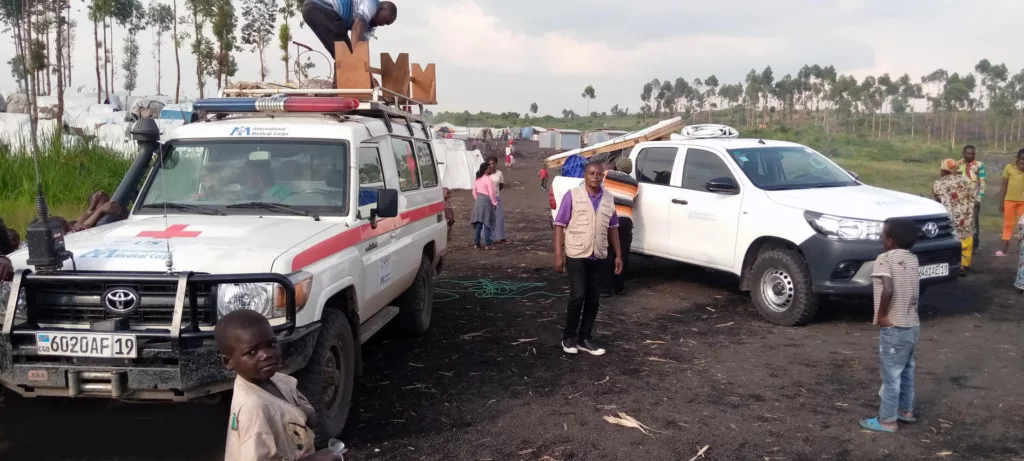Violent clashes in the eastern Democratic Republic of Congo (DRC) have forced tens of thousands from their homes in search of safety. Since January 2024, more than 200,000 internally displaced persons (IDPs) have sheltered in the Kirotshe health zone—which includes Goma, the capital of North Kivu province—at nearby IDP camps. Until recently, International Medical Corps has been working mainly in South Kivu province, with the support of USAID’s Bureau for Humanitarian Assistance. Today, in response to the growing humanitarian need in North Kivu, International Medical Corps is deploying mobile medical units (MMU) in the province, including the Kyabiringa IDP camp there, also with USAID’s support.
Once our team had the necessary supplies and health workers, “We immediately set up the clinic in Kyabiringa camp to provide medical care,” says Dr. Lina Kashibura, who manages the MMU. She adds, “People came running to help us put up our tents, and we began work the same day.” Our team, accompanied by health staff from hospitals and health centers in Kirotshe health zone, provided care while listening to nearby bombs and heavy machine-gun fire.
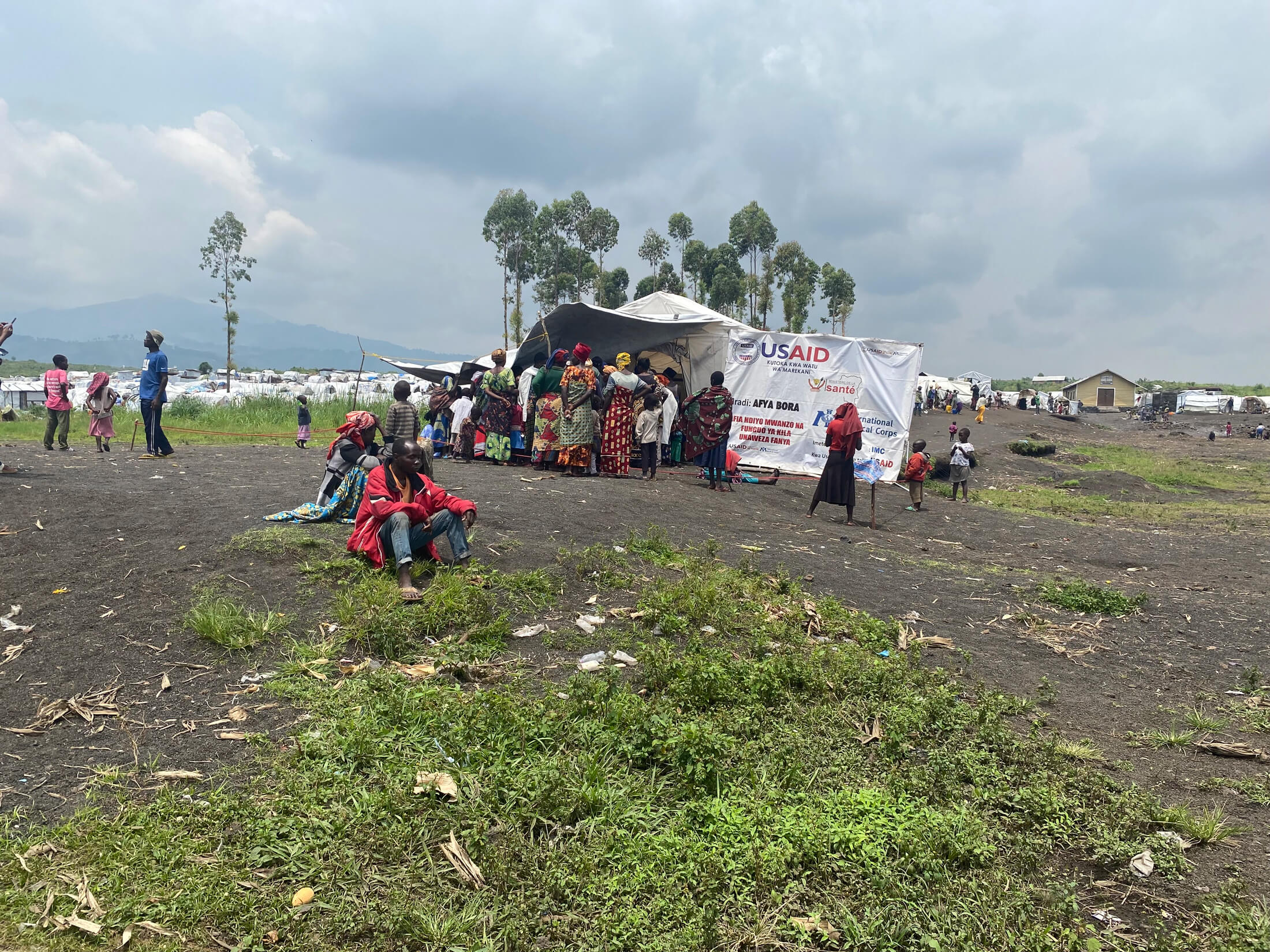
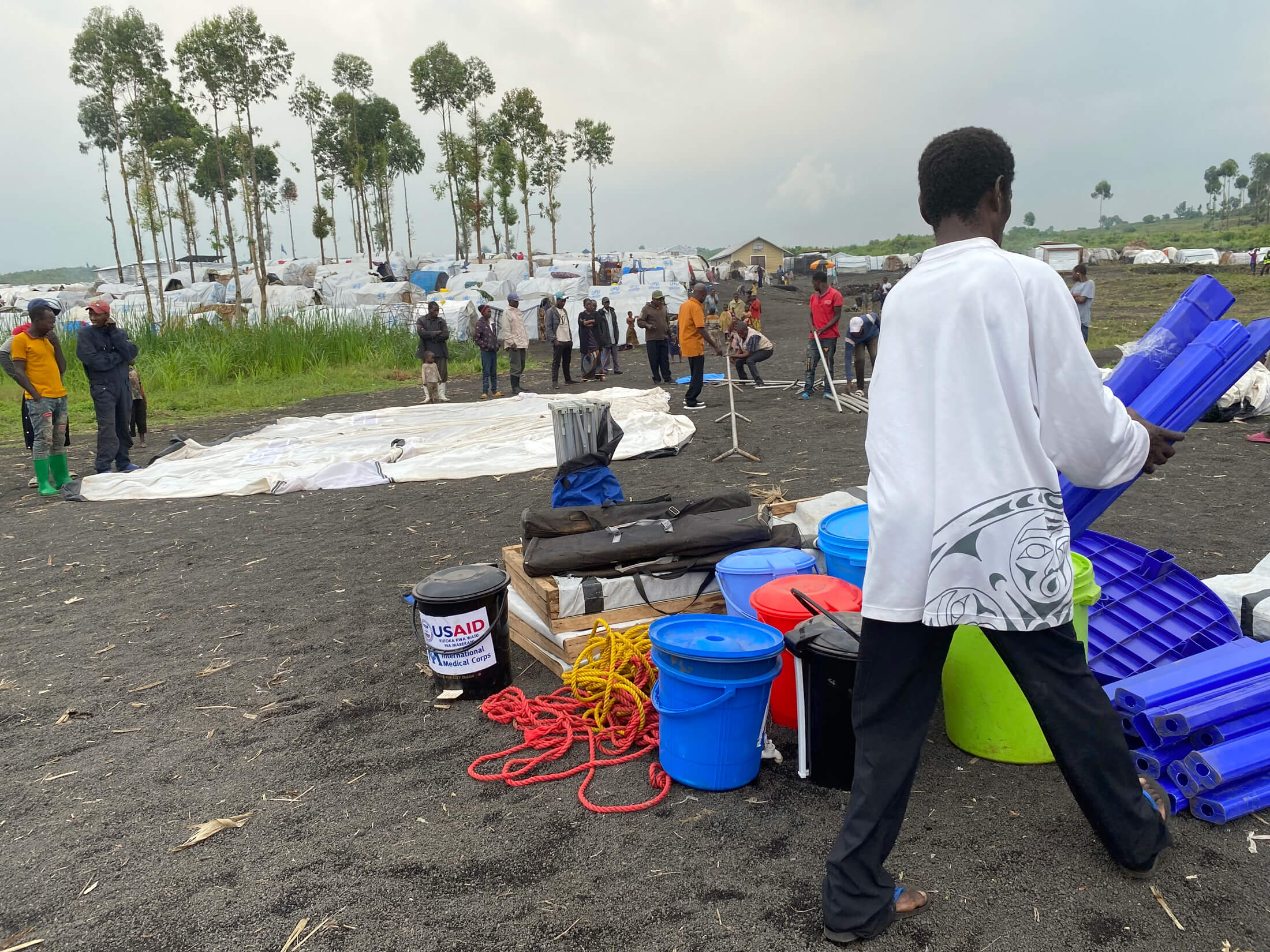
Marie, a 22-year-old woman living in the camp says, “I came with my 6-month-old baby to this clinic because we had nowhere else to go.” She fled her town near the border of DRC and Uganda, where the conflict began getting more intense almost two years ago. “We first fled to another village called Kishishe,” she says. “We walked for three days to get there.” Within weeks of her arrival in Kishishe, armed groups swept through the village killing people, including her host family. “I barely escaped,” she says.
Among the thousands of people like Marie in the camp, none had yet received medical care after arriving in Kyabiringa. “It isn’t clean or sanitary—the conditions we live in expose us to disease. This help is lifesaving for us,” Marie says of the treatment she and her son received. “I’m afraid of losing my child every day. He has a constant fever, but now I think I’ll be able to take good care of him, thanks to the medicines I’ve received.”
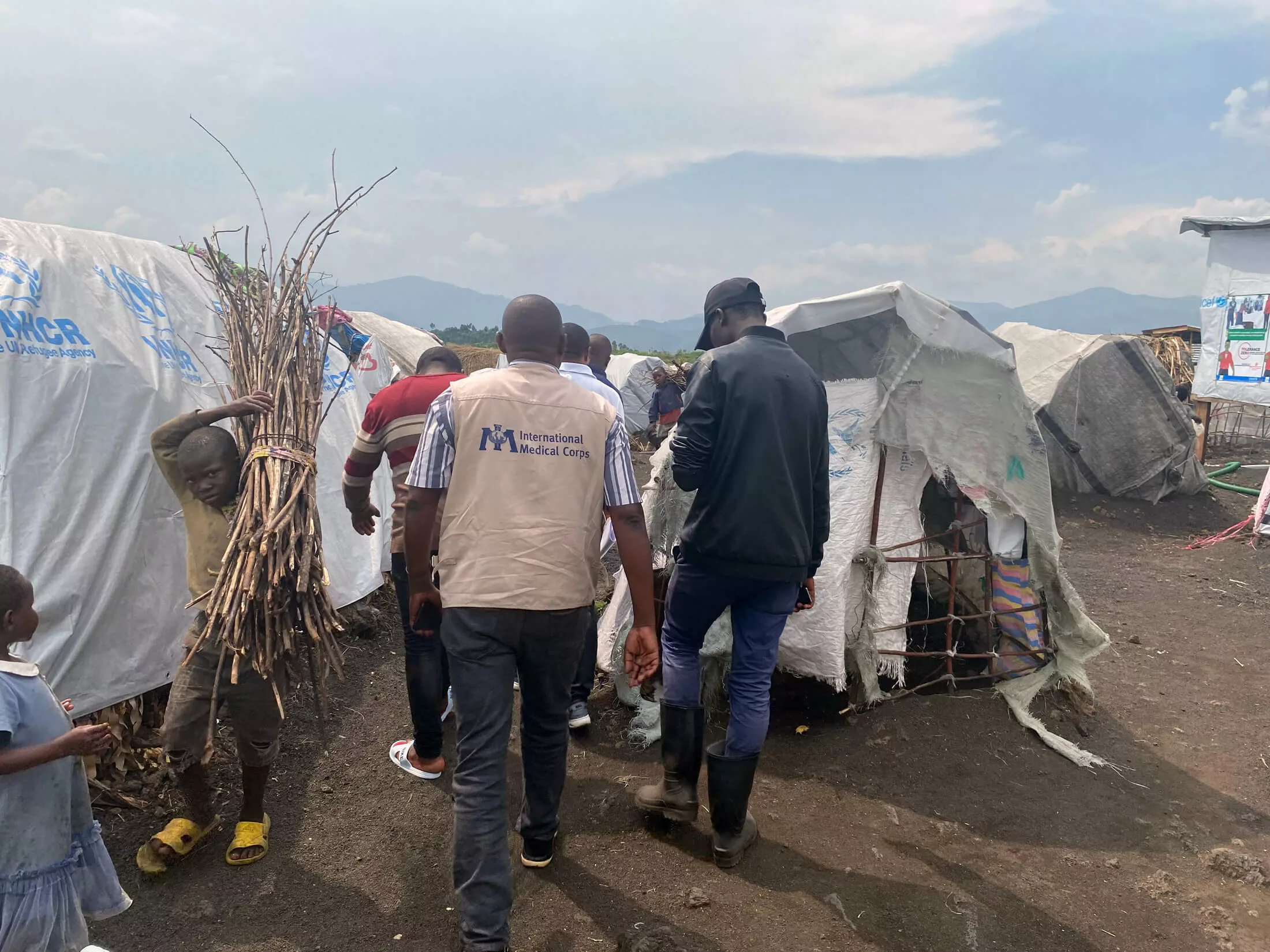
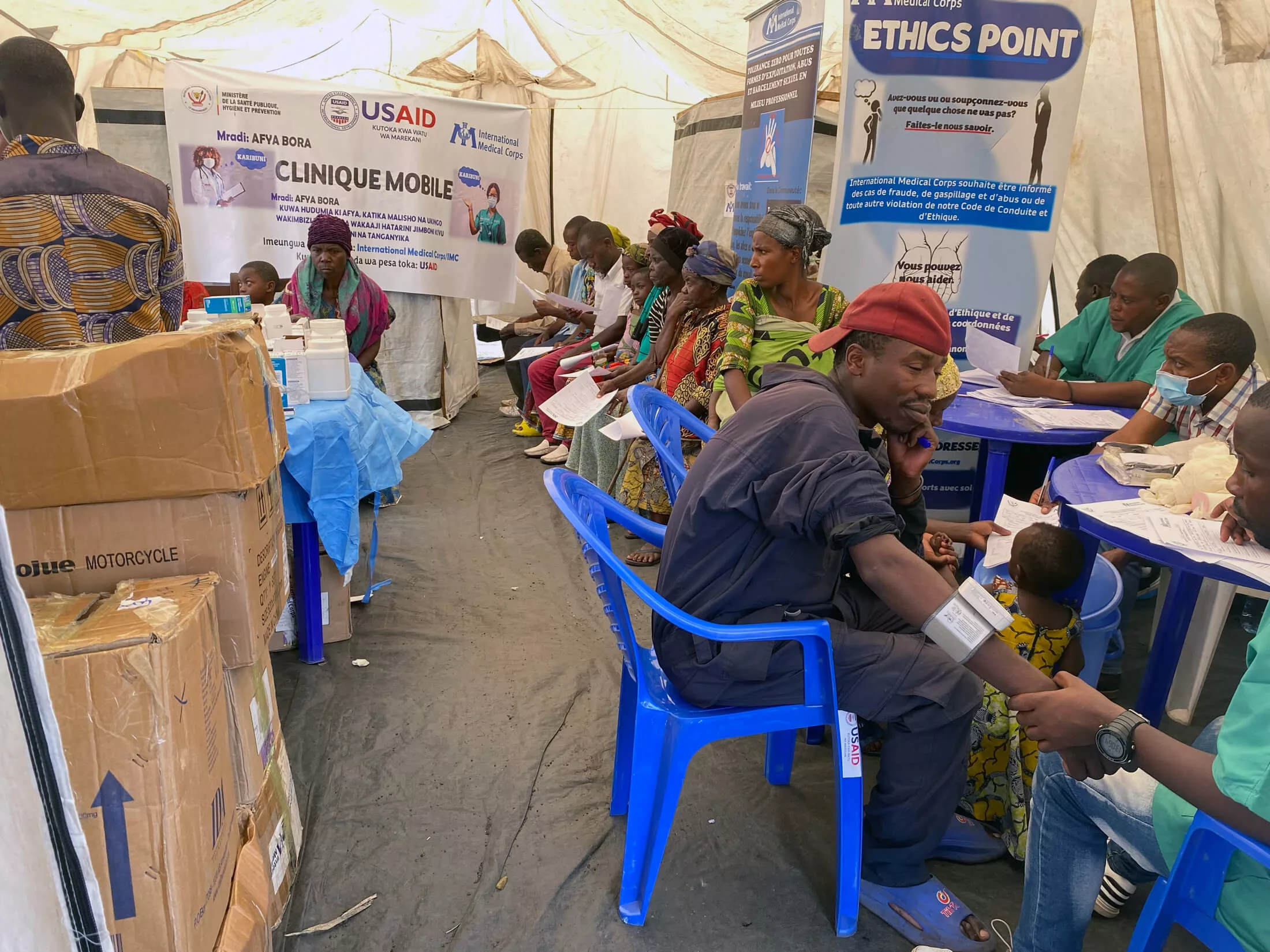
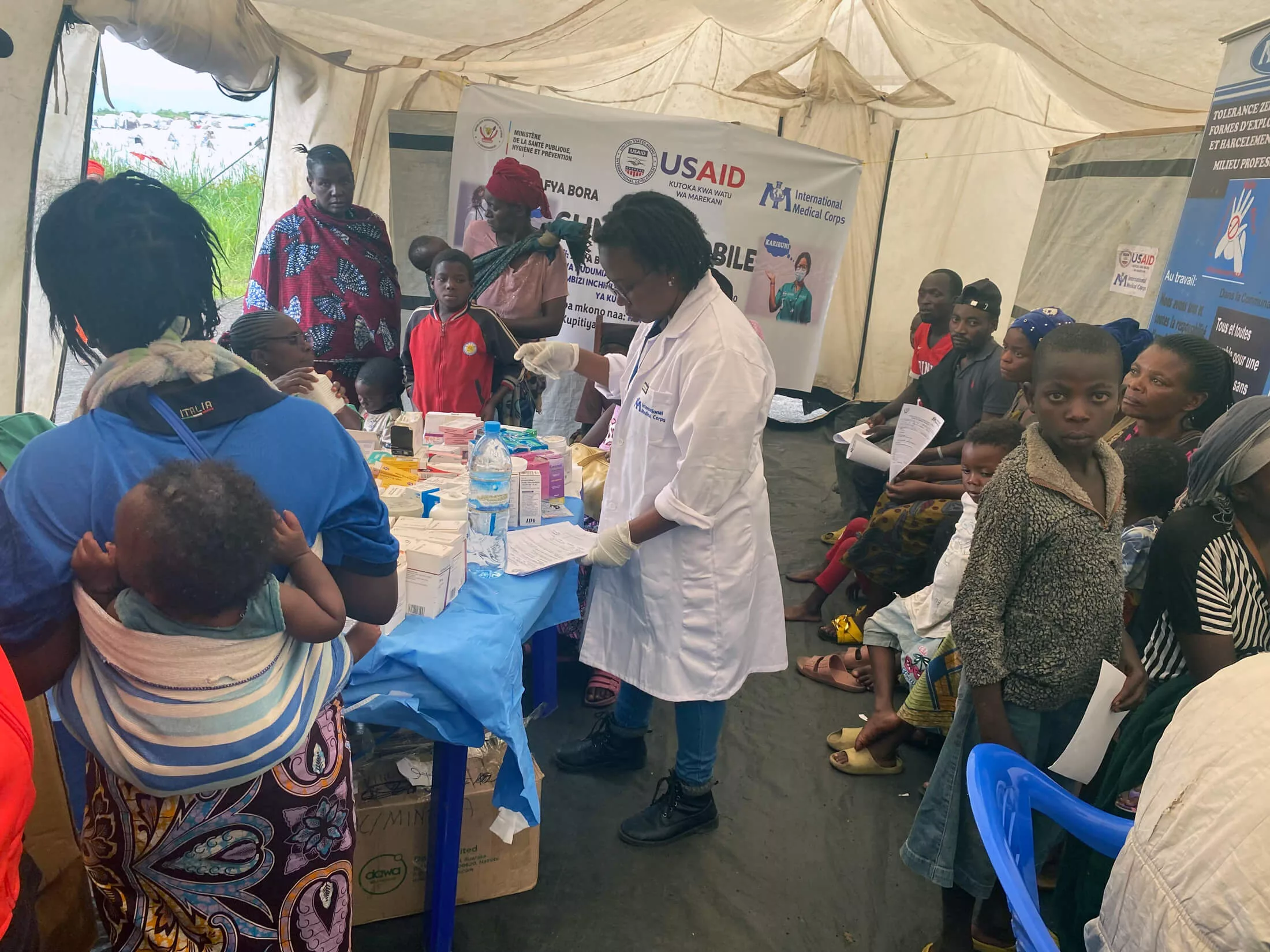
Michel Sebuhinja, 60 years old, is the father of 12 children and an IDP from Rutshuru. He hasn’t seen some of his children for several months and doesn’t know if they’re alive. When Michel hears the explosions getting closer to our MMU, he says, “I don’t understand why this ordeal has lasted so long. We don’t know what to do or where to flee anymore.” As the explosions grow louder, International Medical Corps staff monitor the situation, assessing whether it’s still safe to continue operating the clinic. “This help you’re giving us is essential,” Michel continues. “We can beg for a little food, but when we fall ill, we don’t know where to turn.”
“Practicing medicine while hearing bombs exploding at every moment was not an easy experience,” Dr. Kashibura says. “But we have lifesaving work to do. We get down to it, and above all, we must show courage for our patients.”
After four days of enduring intense conditions and treating more than 430 patients, security conditions deteriorated to the point where the team had to pause operations at the Kyabiringa camp. Since the first round of services, our MMUs have treated more than 1,100 patients at IDP camps in the surrounding areas. The team plans to return to the Kyabiringa camp once security conditions improve, while we plan to expand our North Kivu operations in July.
To keep up to date on International Medical Corps’ work to help communities facing crisis around the world, sign up for our email list.
